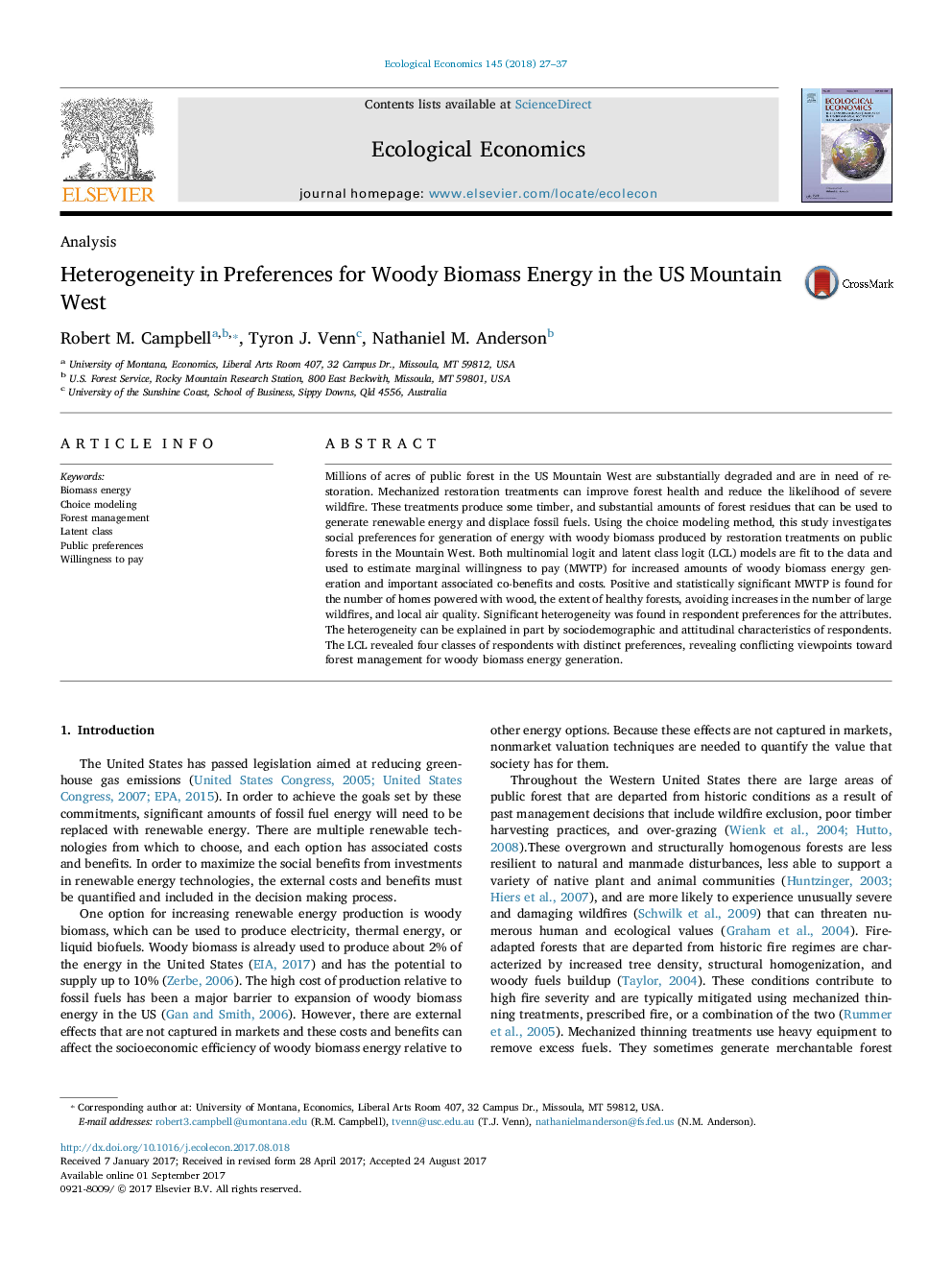ترجمه فارسی عنوان مقاله
ناهمگونی در تنظیمات برای انرژی زیست توده وودی در غرب کوهستان آمریکا
عنوان انگلیسی
Heterogeneity in Preferences for Woody Biomass Energy in the US Mountain West
| کد مقاله | سال انتشار | تعداد صفحات مقاله انگلیسی |
|---|---|---|
| 104962 | 2018 | 11 صفحه PDF |
منبع

Publisher : Elsevier - Science Direct (الزویر - ساینس دایرکت)
Journal : Ecological Economics, Volume 145, March 2018, Pages 27-37
ترجمه کلمات کلیدی
انرژی زیست توده، مدل سازی انتخابی، مدیریت جنگل، کلاس خاموش ترجیحات عمومی، تمایل به پرداخت،
کلمات کلیدی انگلیسی
Biomass energy; Choice modeling; Forest management; Latent class; Public preferences; Willingness to pay;

